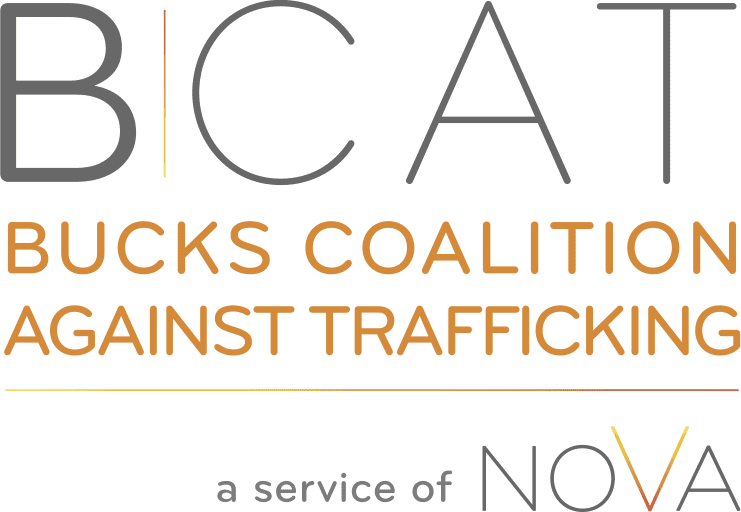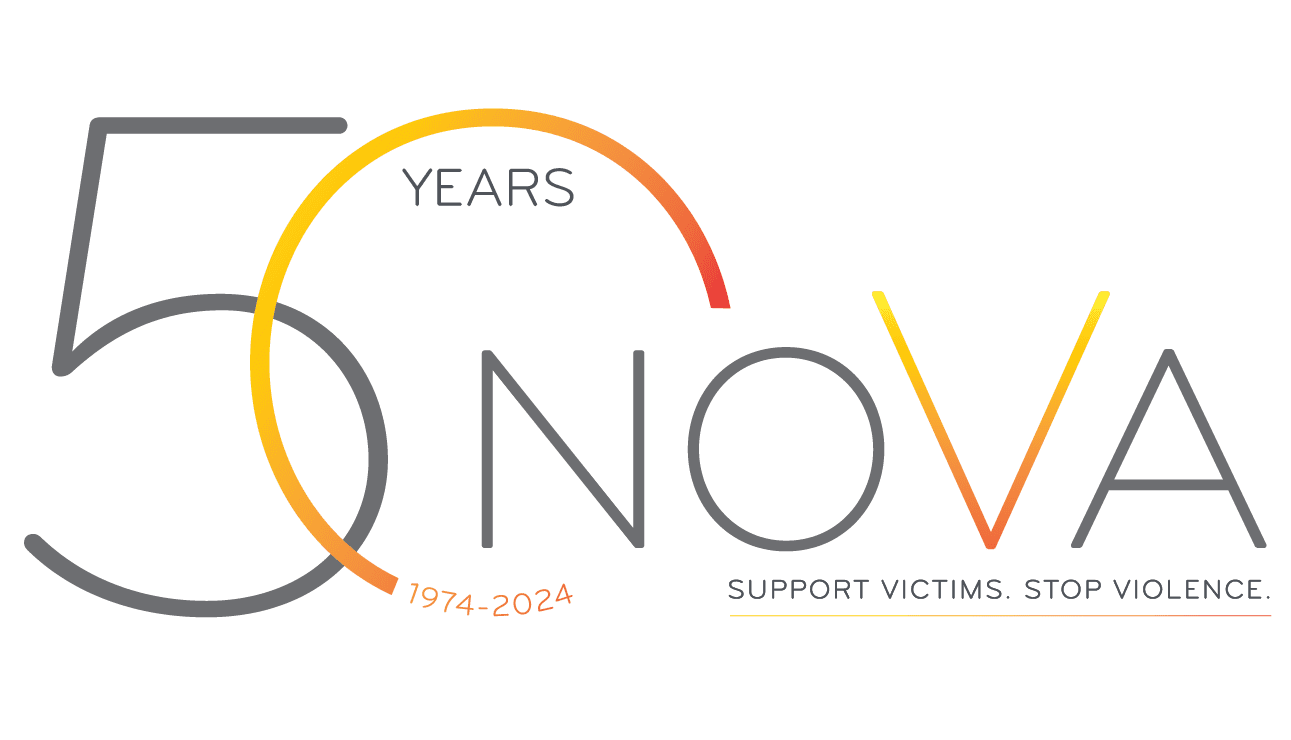Bucks Coalition Against Trafficking (BCAT)
Mission
Human Trafficking can occur anywhere, and it happens here in Bucks County. The Bucks Coalition Against Trafficking welcomes all community members to get involved in the mission to end human trafficking. Join a subcommittee, volunteer with us, or sign up for our email list.

Interested in learning more or joining?
Contact Elyse Hoekstra at elyse.hoekstra@novabucks.org.
Follow us for updates:
Quarterly Meetings
Please check back or join our mailing list for more information about the next quarterly meeting.
Everyone is welcome!
BCAT is comprised of four subcommittees:
Victim Focus
The Victim Focus subcommittee is focused on prevention, intervention, and rehabilitation for victims of human trafficking. It is also concentrated on collaboration with existing organizations to utilize available resources as well as identifying unmet needs to effectively help victims.
Community Outreach
The Community Outreach subcommittee is focused on educating the community about the prevalence of human trafficking in Bucks County. This subcommittee also empowers the community to spread awareness, address demand, and respond to potential trafficking situations.
Law Enforcement and Prosecution
The Law Enforcement and Prosecution subcommittee is focused on training and empowering law enforcement and prosecutors to effectively identify and respond to human trafficking situations and victims.
Legislation and Public Policy
The Legislation and Public Policy subcommittee is focused on identifying public policy issues and opportunities to influence legislative initiatives related to human trafficking as well as educating the coalition and the community on current proposed legislation.
About Human Trafficking
What is Human Trafficking?
Sex trafficking is the recruitment, harboring, transportation, provision, obtaining, patronizing, or soliciting of a person for the purposes of a commercial sex act, in which the commercial sex act is induced by force, fraud, or coercion, or in which the person induced to perform such an act has not attained 18 years of age (22 USC § 7102).
Labor trafficking is the recruitment, harboring, transportation, provision, or obtaining of a person for labor or services, through the use of force, fraud, or coercion for the purposes of subjection to involuntary servitude, peonage, debt bondage, or slavery (22 USC § 7102).
What's the scale?
Source: Polaris Project https://polarisproject.org/human-trafficking/facts
Who is being trafficked?
Why don’t more people know?
Victims often go unnoticed by society because they are being hidden behind a widely socially accepted sex industry.
Commercial sexual exploitation is a hidden crime. It happens behind closed doors in hotel rooms, illicit spas and massage parlors, online, among other venues.

